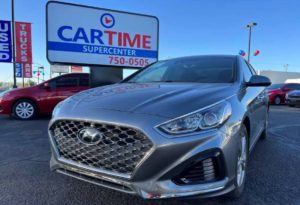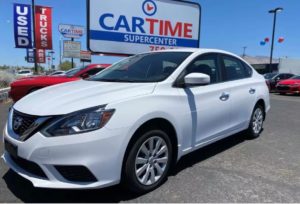When it’s time to sell your car, one of the many questions you might have is: What happens to insurance when I sell my car? This is a common concern for many car owners, especially if they’re not familiar with the process of transferring or canceling an insurance policy. Whether you’re upgrading to a new car, selling an old one, or simply making a change, it’s important to understand the role your car insurance plays in the transaction.
In this article, we’ll take a closer look at what happens to your insurance when you sell a car and the steps you need to take to handle everything properly. We’ll explore options for canceling or transferring your policy, discuss potential refunds, and highlight common mistakes to avoid. After all, keeping track of your car insurance is just as important as finding the right buyer for your vehicle.
What Happens to Insurance When You Sell Your Car?
Wondering: If I sell my car, what happens to the insurance? The answer can vary depending on your situation, but in general, the sale of your car triggers the need to either cancel or transfer your insurance coverage.
If you’ve sold your car and no longer own a vehicle, you’ll need to notify your insurance company immediately. They’ll cancel your policy or adjust it accordingly, which may involve offering you a refund for any unused premium. However, if you plan to purchase a new car, your insurer may allow you to transfer your coverage to the new vehicle.
It’s important to communicate with your insurance provider as soon as possible to avoid paying for coverage on a car you no longer own. The risks of not informing your insurer go beyond just overpaying for coverage.
If an accident were to occur after you’ve sold your car, and your insurer isn’t aware of the sale, you could face complications. For example, if the new owner of the vehicle is involved in an accident and you are still listed as the insured party, the insurer may reject claims related to the vehicle. This could leave you liable for any claims or damage related to an accident that occurs after the sale, even though you no longer own the car.
Canceling or Transferring Your Insurance
If you don’t plan on getting a new vehicle right away, you’ll need to cancel your insurance policy. This process is typically straightforward. Don’t skip any steps, as continuing to pay for coverage on a car you no longer own could result in wasted premiums.
If you’re buying a new vehicle shortly after selling your old car, you may have the option to transfer your insurance coverage to your new car. This can save you time and money, as you won’t need to purchase a brand-new policy.
However, the new car will need to meet the same coverage requirements that your previous car had, so it’s a good idea to check with your insurer to ensure everything is in order. This option is particularly helpful for those looking to make a smooth transition from one vehicle to another without the hassle of setting up new insurance.
By staying on top of these steps, you can avoid unnecessary gaps in coverage or overpaying for a policy you don’t need.
Refunds and Premium Adjustments
Another key consideration when selling your car is what happens to the insurance premiums you’ve already paid. If you cancel your insurance policy, you may be entitled to a refund for the unused portion of your premium.
Many insurance companies offer prorated refunds based on the time left on your policy. So if you cancel halfway through a six-month policy, you should expect a refund for the remaining three months.
It’s important to note that not all insurance providers handle refunds in the same way. Some may deduct administrative fees or process the refund on a specific schedule, so be sure to inquire about the details with your insurer. If you’re selling your car and switching to a different provider for your new vehicle, any refund you’re due may be applied as a credit toward your new policy.
While the refund is a nice perk, check that your new insurance policy provides adequate coverage for your new vehicle. Cancelling early in the policy term can result in a substantial refund, which could help offset the cost of your new car or assist with other expenses.
What If You Buy Another Car?
If you’ve sold your car and plan to purchase a new one, you might be wondering how your insurance will adjust. In this case, the process is usually straightforward. If you’re buying from our dealership at Car Time Supercenter, the sales team can help guide you through the steps to make sure your insurance is transferred smoothly.
When buying a new car, your insurer will likely ask for details about the make, model, year, and VIN (Vehicle Identification Number) of the new car. This allows them to adjust your coverage to match the requirements for the new vehicle.
Note that the cost of insurance may vary depending on the make and model of your new car. For instance, luxury cars or high-performance vehicles might come with higher premiums, while sedans or more economical vehicles may be less expensive to insure.
If you’re trading in your old car and financing a new one, you may also need to provide proof of insurance to the dealership. This is a common requirement for auto loans or leases, so make sure you’ve taken care of your insurance before completing the purchase. If you’re unsure about how to proceed with your insurance after selling your car, your insurance provider can help clarify your options.
The Special Case of Multi-Vehicle Policies
If you are an owner with a multi-vehicle policy, the process is far simpler. When you sell your car, the vehicle is merely removed from the policy rather than the entire policy being canceled. Your remaining vehicle(s) and their associated coverage, as well as your driving history, remain intact.
The only change you will notice is a premium adjustment, generally lowering the total premium. Keep in mind, however, that you may lose any multi-car discount you were receiving, which could slightly offset the reduction in cost. Nevertheless, this approach maintains continuous coverage and avoids any issues associated with lapses.
Common Mistakes When Selling a Car and Insurance
When selling a car, there are a few common mistakes that people often make with their insurance, which can lead to complications. One of the most frequent errors is failing to inform your insurance company about the sale. Continuing to pay for coverage on a car you no longer own can be an unnecessary expense, and it might even affect your premiums in the future.
Another mistake is neglecting to adjust the coverage on your new car promptly. If you’re upgrading to a new vehicle, make sure your insurance coverage is updated right away. Waiting too long to inform your insurer could result in a lapse in coverage, leaving you vulnerable to financial risk if something happens before your new policy is fully active.
Furthermore, many people forget to ask about any potential refunds or adjustments to their premiums when they sell their car. Understanding how refunds work and what fees may be deducted can help you avoid losing money in the process.
Other common mistakes include:
- Assuming Coverage Transfers: A common misconception is that your existing policy will somehow cover the new owner until they get their own. Insurance coverage is tied to the policyholder, not the car, and your policy will not cover a new, unknown driver who buys the vehicle from you.
- Canceling Before Selling: Never cancel your insurance before the buyer has taken possession and the title is signed over. If an accident occurs during a test drive or while the car is still on your property, you will be financially responsible.
- Stopping Payment: Letting a policy lapse due to non-payment, instead of formally canceling it, will be reported to insurance databases and result in higher future rates.
Closing the Loop
Understanding the changes that occur with your car insurance when you sell your vehicle is essential to ensuring that you’re not paying for coverage you no longer need. Whether you’re canceling your policy entirely or transferring it to a new car, staying on top of your insurance adjustments will help you avoid unnecessary expenses. The process can be straightforward, but it requires timely communication with your insurer to ensure that your coverage is either adjusted or canceled properly.
At Car Time Supercenter, we understand how important it is to make smooth transitions when it comes to purchasing and selling cars. With over 40 years of experience in the automotive industry, we’re here to assist you with all the necessary steps when it comes to financing and insurance transitions. Whether you’re upgrading to a new car or trading in your old one, we offer flexible car financing options that can make the process easier.
Our team is ready to assist you when you are looking to sell your car or purchase a new one. With our friendly, family-oriented approach, we ensure a seamless experience from start to finish.
If you have any questions about your car insurance or need help with any aspect of the car-selling or buying process, reach out to us today. We’re here to guide you every step of the way.

There are good reasons people will buy their next used car in Tucson from Car Time Supercenter. But I think we are one of the most trusted used car dealerships mainly because we treat everyone like family. My family has provided quality, dependable local used cars to Tucson customers since 1984, and I’m proud to be a part of our continued success.
Like many family-owned businesses, I grew up going to work with my dad. Falling in love with cars was natural because of my father’s passion, and eventually, I came to love the car business just like him. I officially joined the Car Time Supercenter team in 2012, starting in the finance department. Over the past decade, I’ve learned the used car business and how to treat customers from my family and industry resources.
Today, I oversee marketing, social media, inventory, and reconditioning, so I play an essential role in delivering local Tucson used car buyers the best experience possible. I also help our family business keep up with the times while providing old-fashioned customer service. From attending NADA classes to becoming Allstate certified for back-end products, I continue to learn and add skills to serve our customers better.




